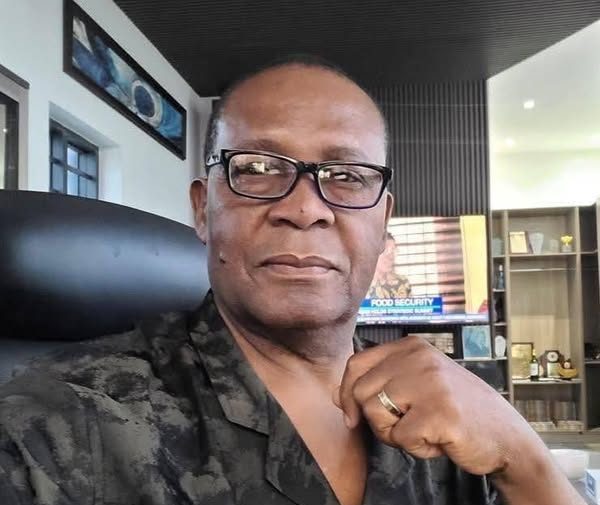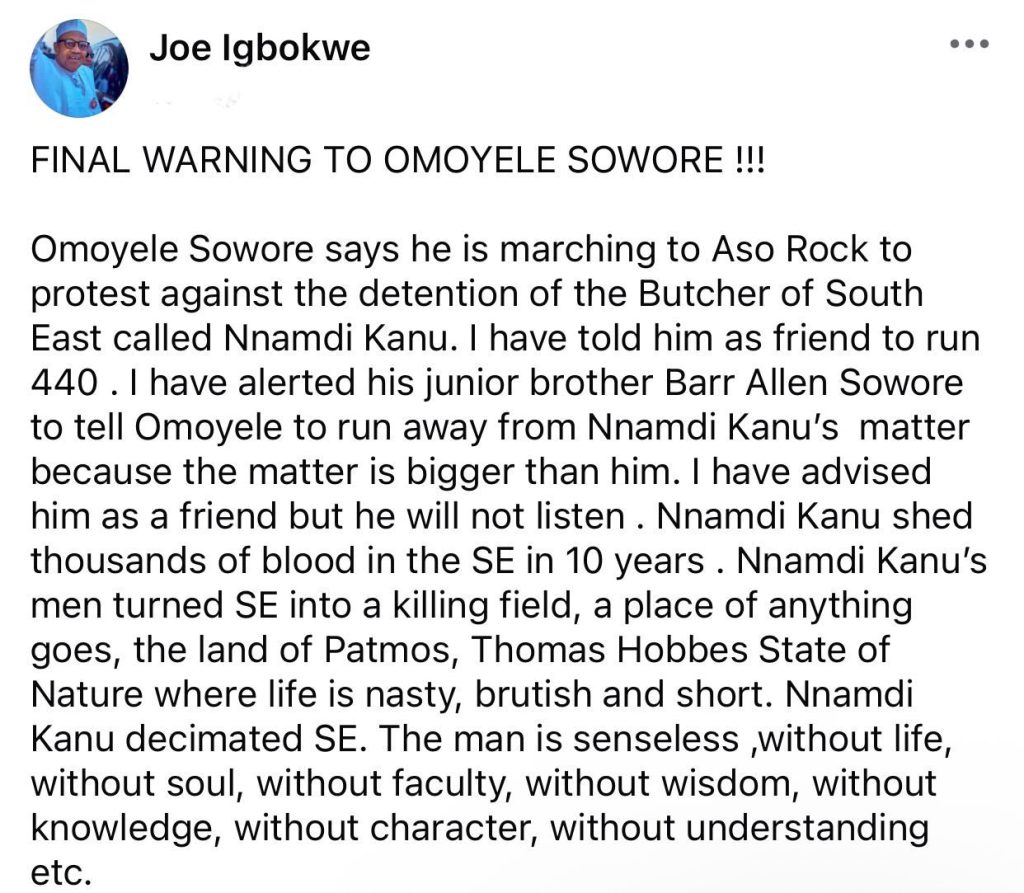Run 440 Away From South East Matter, Joe Igbokwe Warns Sowore
APC chieftain Joe Igbokwe has warned activist Omoyele Sowore to stay away from issues concerning the South East ahead of his planned protest for Nnamdi Kanu’s release.
Igbokwe said Kanu’s agitation brought destruction and bloodshed to the region, setting it back by decades.
A chieftain of the All Progressives Congress (APC), Joe Igbokwe, has criticized activist and Sahara Reporters publisher, Omoyele Sowore, over his plan to lead a protest in Abuja on October 20 to demand the release of detained Indigenous People of Biafra (IPOB) leader, Nnamdi Kanu.

Igbokwe, in a post shared on his Instagram page, strongly cautioned Sowore to stay away from matters relating to the South East, saying Kanu’s agitation for Biafra left behind destruction, bloodshed, and years of instability in the region.
According to the APC stalwart, the separatist campaign spearheaded by Kanu “dragged the Igbo nation backward by decades” and turned the South East into what he described as a zone of chaos and lawlessness.
“Omoyele Sowore says he is marching to Aso Rock to protest the detention of the man who destroyed the South East. I have warned him to stay away from the issue of Nnamdi Kanu because the matter is far bigger than him,” Igbokwe wrote.
He claimed the IPOB leader’s actions resulted in the deaths of thousands and caused immeasurable damage to the social and economic fabric of the South East.
“Those years of killings and unrest ruined the reputation and progress of the region,” he added. “We lost honor, integrity, and peace. What Nnamdi Kanu did will take years to undo.”
Igbokwe, a former aide to the Lagos State government, further advised Sowore to focus on other national issues rather than aligning himself with what he described as “a senseless cause that brought nothing but pain to Igbo people.”
He concluded his post by urging Nigerians from other regions to avoid being drawn into what he called “a reckless adventure,” insisting that the agitation for Biafra has outlived its purpose and remains a tragic chapter in the history of the South East.




